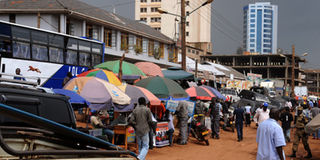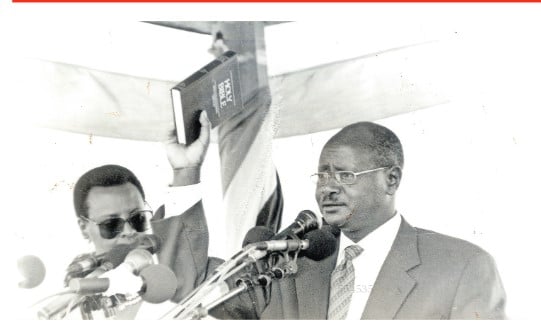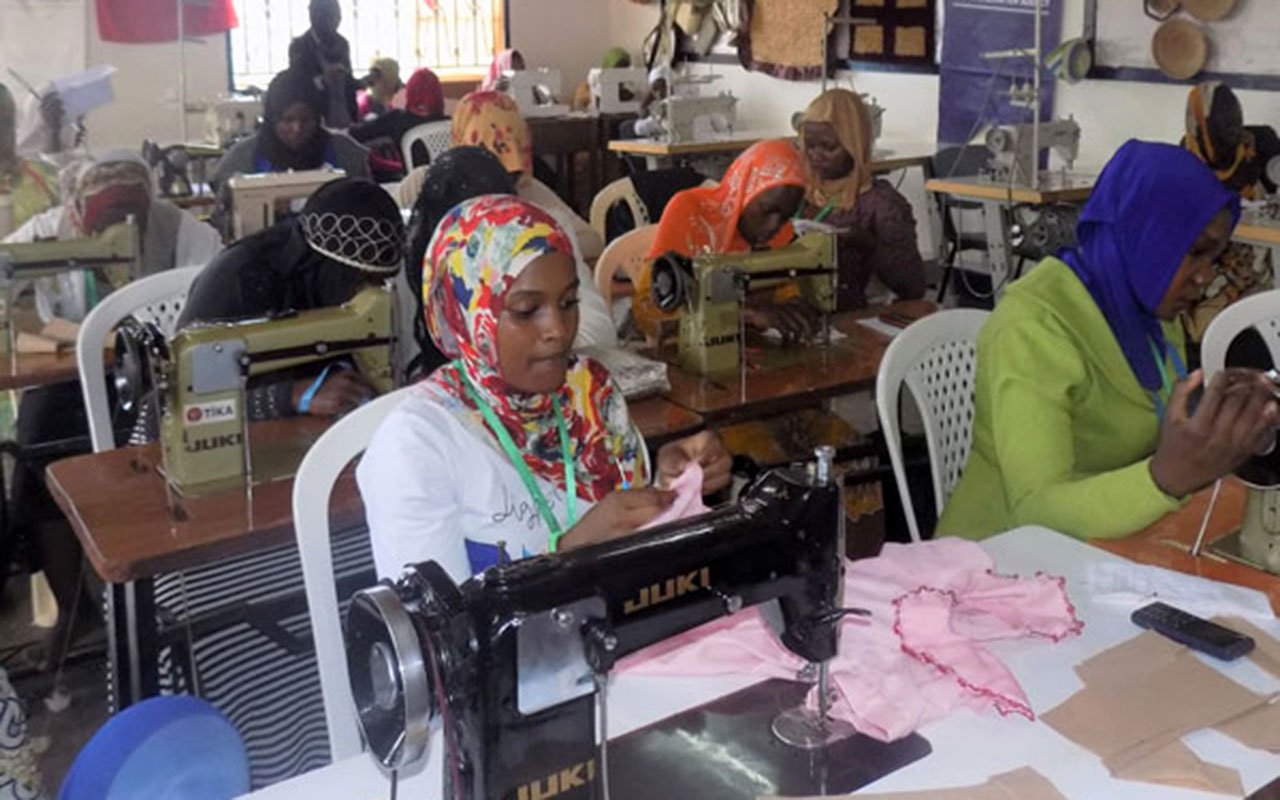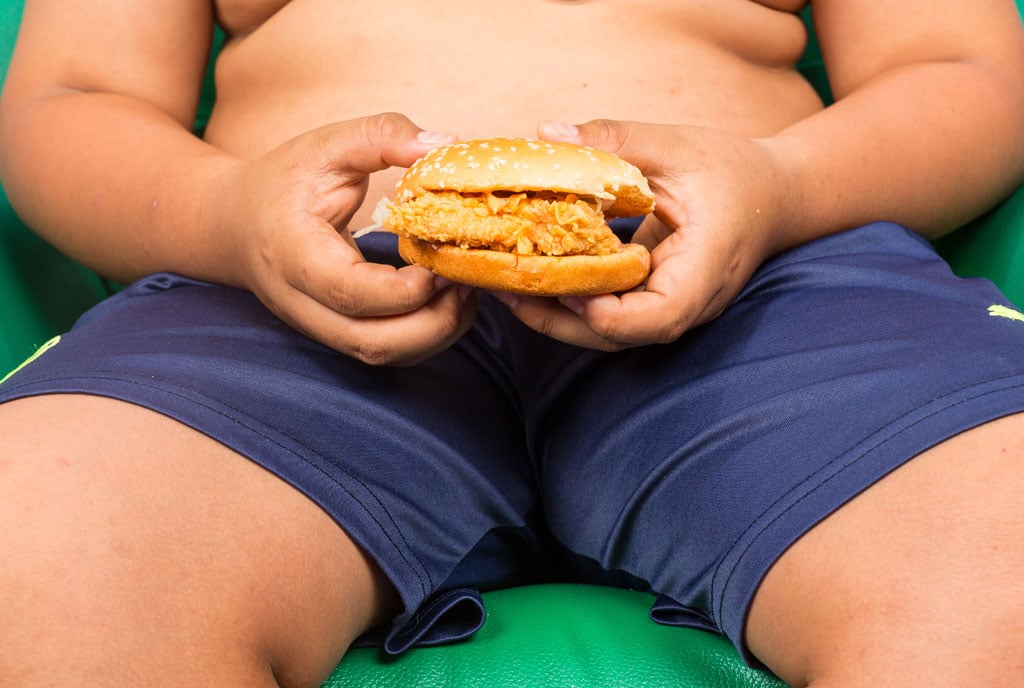Prime
Arua park-the hyperactive conurbation of sorts

Make shift food stalls serve customers. Photos by Faiswal Kasirye.
What you need to know:
No sooner have you entered the park than you are engulfed in the active life of the sleepless Arua Park. People from all walks of life are brought together in the chaos and activity.
By 6am I’m walking down the broken pavements littered with rubbish from Equatorial Plaza to Katumwa Sports Centre until I find myself at the inter-tribal, inter-lingual and inter-activity that weaves through Arua Park. Seated in a restaurant, I begin to observe and get a taste of the life at Arua Park. The morning buses, some headed to Juba, some to Dar-es-Salaam are almost setting off. Not so far away from me, trucks are being loaded with commodities that have just been unloaded from other trucks.
Arua Park is already buzzing with activity in the morning. Above the Total Petrol Station in the area, the makeshift restaurants are already booming with customers. “Bring me tea, bring me katogo, bring me Kalo,” the men are heard ordering the waitresses. On the same street, the hardware shops are already open for the day’s business. Bags of cement, iron-sheets and piles of nails among others are loaded onto trucks headed for Southern Sudan.
When I hear the luggage carriers shout and hiss “faasi faasi” I’m forced to believe it is their national anthem. One of them whisks by me, missing me by only a fingertip yet another’s cargo scratches the knittings on my shirt. I give off a soft arrrggh, he turns then gives me that look of “you had better walk a mile in my shoes before you whine.” Another of his colleagues sputters out sounds of “get out of the way Mr weakling” or to put it as he said, “Vva mukuubo Musuuja gwe.”
Blending in the chaos
I am awakened by the whirring sounds of a truck whose paint is worn down to the primer. A chubby slavish man tickling his belly momentarily signals these faasi faasi to come and sell their manpower. “Owomutwe, owomutwe,” he calls out before a group of men dressed in tattered shirts, wrinkled trousers with brown patches and stains all come to him in a humble adoration of sorts.
Nearing mid-day, a man who seems to be in a hurry approaches me, looks me straight in the eyes and waves by a bundle of dollars, shillings and francs promising to offer me unbeatable exchange rates. All sorts of questions engulf my mind: “What if he is a con man posing as a forex dealer or what if he turns out to be an armed robber?” He tries to convince me in English then switches to Luganda before I let him know of my wallet’s predicament saying, “Sebbo silina sente kati.” Hurriedly, he takes long strides into Sun-city plaza a bit disappointed.
Sun-City Plaza next to the park spots numerous forex bureaus with serious-looking guards and policemen who seem to be waiting for the right moment to open fire. Not one, not two but none of the people here ever whisper a simple greeting to them.
At the travel agencies adjacent, a baby takes a nap on her mother’s lap while two tall men doze off in the waiting area. All sorts of people can be seen at the Gagaa coach waiting zone. Some travellers are impatient and look at their watches at every other second, others are worried and fret. But there are some who wait patiently.
Not a minute to waste
Jovin Nalubega, a lady who works for one of the forex bureaus informs me that, “The biggest population in Arua Park comprises Alurs and Lugbaras.” But the restaurants are there to meet each person at their own point of need. Sudanese, Kenyan and Ugandan food is available in most restaurants. But it all has one common aspect to it, Karo, kalo or whatever you may choose to call the millet bread.
The mixture of powerful onions, garlic, dried fish and spices make a potent combination. Struggling to hold my breath for a moment as I walk past this Sudanese restaurant next to Biyinzika Farmers, I imagine what the patrons must be going through. Perhaps they are used to the smell. The cuisine for the day comprises Mokhbaza(pasted bananas) and the famous kissra Sudanese bread.
Even the men chewing leaves of cannabis are not left out of place. Tired from the previous night’s work, they cannot afford to lose a day to sleep. They whistle, clap, tap their legs and cat call at passersby.
For Arua Park, each minute spells a shilling to the traders. Right from the man burning music CDs and playing Clever J’s hit song of 2007, to the clothes dealers, each minute is worth keeping the eyes wide open lest you bring a pick-pocket’s day to life. I task the man at his computer to burn me a CD with a Maurice Kirya hit. He briskly shuffles through his playlist assuring me that he has everything.
After a 10 minute unfruitful search, he talks of a computer virus that “ate” some of his files but tells me to check on him later-perhaps by later he meant a month or two. Betting companies lay traps for the travellers; a man comes by, checks the odds on the chart and heads off to try his luck. A shoddy man with a limp in his legs gets to check the odds and tears up his betting paper to pieces
As lunchtime approaches, in one of the many filthy alleyways, the army of caterers gets ready to serve lunch. The smell of food wafts over to the Nile Building corner, where I am seated. Lunch at Arua Park is in the open, I am forced to repose on a nearby bench in a corner and order for matooke and beans which go for Shs 2,500. The lady serving me looks on sheepishly wondering how I could forget the famous Karo.
The men are known for periodically tapping the ladies bottoms as the girls feign annoyance at the act. The act goes on even during the food delivery processes. The conversations swift all the time in the Alur language, and it is the laughter that tells me some funny quotes are being made about their escapades with different ladies. Surprisingly, in this makeshift restaurant where I’m seated, all the customers are men.
For five minutes or so, I am oblivious to my surroundings. All I do is eat and then head off to explorer other parts of Arua Park. However, for many here, lunch time passes without notice, luggage carriers are on hand to assist in offloading a bus that has just arrived from upcountry. Two men on the other hand are trying to make a bargain as far as hiring a truck is concerned.
The conversations all rotate in millions. I find out later that to hire a 10-tonne truck to Arua, one should be willing to part with an average of Shs1.5m. As the evening builds up, cocoons of men engrossed in conversations also build up. In all these gatherings, I have to blend in the crowd. To achieve this, I needed to grab my crotch then look on awed at the surrounding. But I am not the crotch grabbing type, the best I can afford is to wrinkle my shirt and pretend to be making a phone call. At least it is characteristic of the men here.
The night life of Arua Park
To many people, Arua Park is a hybrid of pick-pockets when the night falls. With such warnings beforehand, I keep on checking my pockets just to be sure my wallet is intact. Congolese music plays at a blaring volume from the nearby stall perhaps to appease the travellers who are boarding the bus to Congo. Men find solace in bottles of beer and vendors spread out tomatoes and other perishables for interested buyers. At night, the traders sell everything a person might need, from the crisp fruits laid on polythene bags and others nestled in bushel baskets, to the fresh vegetables stacked in pyramids on the pathways.
The night finds me seated on a bench at Total Petrol Station chatting up one of the fuel attendants. The night life of Arua Park braises with cups of coffee and porridge. I order a scone and cup of scalding tea and partake of the early night culture.
A woman pleads to be allowed onto the next bus, but it is clear she arrived late. Mansur Kumbuka, the chairman of the park says, “Each bus follows a strict timetable of one hour per bus. “Once an hour ends, a bus is expected to pave way for the next bus and head for its destination without delay.”
At 11pm, I am forced to ask John Data, the luggage carrier, when Arua Park winds off business for the night. He bluntly tells me, “As far as Arua Park is concerned, the people do not sleep.” His words are echoed by the bus that has just arrived from Juba. Agents of different guest houses try to convince the travellers to spend the night in the comfort of their rooms.
Unlike other busy spots, I do not see any women of the night. Data confides in me saying, “The founders of Arua Park were Muslims and finding a lady of the night is unheard of-at least they are not in active operation.” It is all clear; Arua Park is a conurbation of sorts with spurts of buses and trucks from all walks of life.
In our frenzied contemporary world, ordinary life confronts an essential tension between continuity and disconnection. For Arua Park, continuity and disconnection are not neatly distinguishable. There is no clean subdivision between work, home and leisure. These are not like artificial periods, called by a morning bell or precisely measured out by a prominent factory clock, neither are they separate terms that have become far removed from concrete experience. It is without denial that for the next years, it will still be an area of vitality and industry.
How Arua Park came to be
An exodus of investment began at what is now called Arua Park in 1986 when many Ugandans began returning from exile. Mansur Kumbuka, the chairman for Munno B village in charge of the youth recounts that Arua Park was an ideology of a few idlers who decided to do something with their life. “There used to be some old men, most notably one called Masjid, an Alur who basked in the shade of a mango tree eating jackfruit on a daily basis,” narrates Kumbuka.
The current King Fahd Plaza was built where the gigantic mango tree once grew. Masjid and his friends were so idle and thus decided to start up some business. “Together, they bought an Isuzu truck that was to take things to Arua,” says Kumbuka. It was the only vehicle taking things to Arua thus people began taking their things to Masjid to be transported to Arua.
“Arua did not have any stage in Kampala and like the people of Koboko who later followed suit and brought their things to Arua Park.” From 1990-1991, Masjid and his friends began managing buses under the ownership of a rich trader.“The history of success as far as lorries were concerned was the reason they were trusted with the buses to transport passengers.”
Another notable feature that made the name of Arua Park stick was because it was the only bus park which followed a strict system of booking buses a day before. “It is a must to book, and other bus parks just picked a leaf from our system but it’s Arua Park that started the booking process.” Today Arua Park has become an inter-park with buses plying different routes and bustling lines of activity day and night.




